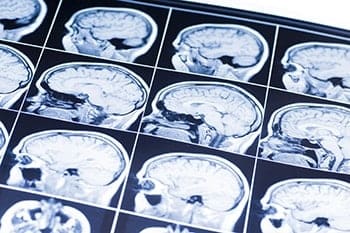Table of Contents
Brain injuries can leave you unable to live your life as you once did. If you’ve suffered such an injury because of another party’s negligent or wrongful conduct, you may be entitled to compensation.
To fight for your rights effectively, it’s essential to hire a brain injury lawyer to represent you. The Philadelphia brain injury attorneys at PhillyLaw are dedicated to offering the support injury victims need.
How a Philadelphia Brain Injury Attorney Can Help You
Our brain injury lawyers provide several services to support you as you make your way through the legal process:
-
Evaluating the Case – The first step is to assess your claim so we can recommend the most appropriate legal options. We do this during a free, no-obligation consultation.
-
Gathering Evidence – Next, our Philadelphia traumatic brain injury lawyers will investigate the accident that caused your injury and gather evidence to establish liability.
-
Filing Claims – Our team will manage all of the paperwork necessary to file a legal claim and ensure that all procedures are carried out correctly.
-
Negotiating With Insurance Companies – Our traumatic brain injury attorneys have ample experience dealing with insurers and will do everything in their power to secure a fair settlement for you.
-
Representing in Court – In some cases, it may not be possible to obtain a satisfactory settlement. If this happens, we won’t hesitate to take your claim to court.
Traumatic Brain Injury
What is a traumatic brain injury (TBI)? These injuries arise when an outside force, like a hard blow or sudden jolt, causes the brain to shift in the skull. TBIs can also occur if an object penetrates the skull and damages the brain.
Traumatic brain injury symptoms typically include:
-
Headaches
-
Disorientation
-
Nausea
-
Vomiting
-
Fatigue
-
Sleeping more than normal
With severe damage to the brain, traumatic injury symptoms can include unexplained mood changes, including aggression, and even coma.
Types of Traumatic Brain Injuries
What is a traumatic brain injury, exactly? Now that you know some of the most common traumatic brain injury symptoms, it’s important to understand the various types of TBIs that accident victims can sustain.
-
Closed-Head Injury – Closed-head injuries are those in which the skull remains intact. They’re usually the result of an outside force powerful enough to cause the brain to move around inside the skull.
-
Open-Head Injury – An open-head injury is one in which an object penetrates the skull and directly damages the brain tissue inside.
-
Concussions – Concussions are the most common type of brain injury. They occur when a sudden force causes the brain to twist or shift, leading to brain cell damage and potential chemical changes.
-
Contusions – Contusions are deep bruises that affect the brain as a result of trauma, such as that from a collision or forceful impact.
-
Diffuse Axonal Injury (DAI) – Diffuse axonal injuries (DAIs) are severe injuries that require extensive traumatic brain injury rehabilitation. They happen when the long nerve fibers in the brain, known as axons, become damaged.
-
Penetrating Injuries – Penetrating injuries occur when an object pierces the skull and damages the brain. They can be superficial or deep.
-
Anoxic Brain Injury – An anoxic head injury isn’t a TBI per se. Rather, it occurs when the brain is deprived of oxygen for long enough to lead to cellular death.
The exact cause of the injury will dictate the appropriate treatment options and whether the victim will be able to fully recover.
Causes of Brain Injuries
Traumatic brain injuries have many potential causes. Here are a few of the most common:
-
Vehicle-Related Collisions – Auto accidents are among the most common causes of TBIs. Car, truck, motorcycle, bicycle, and pedestrian accidents can all give rise to head trauma that endangers the brain.
-
Falls – Falls from heights, such as a ladder or staircase, or even your bed, could leave you with a TBI. These mishaps are particularly common among children and older adults.
-
Workplace Accidents – Those who work on construction sites or in other dangerous workplaces can be struck by machinery or fall from significant heights, which can result in severe head trauma.
-
Sports Injuries – People who participate in impact sports like football, soccer, and boxing are more likely to suffer blows to the head that can produce TBIs.
-
Violence – Assaults that involve blows to the head can cause open- or closed-head injuries that do varying degrees of damage to the brain.
-
Military Actions and Explosive Blasts – Servicemembers can experience TBIs during combat and even during training exercises from explosions or concussive forces.
-
Medical Conditions – Brain injuries can also stem from strokes, anesthesia errors, and a variety of other medical issues.
Liability for Brain Injury Cases in Pennsylvania
If the party responsible for your injury owed you a duty of care and failed to uphold it, they may have acted with negligence. To hold them accountable for your losses, you must prove that wrongful conduct was a factor in your injury.
Because Pennsylvania has comparative negligence laws in place, you can still recover damages if you were partly to blame for your accident.
Exploring Potential Liable Parties in Pennsylvania Brain Injury Cases
Our knowledgeable Philadelphia brain injury attorneys can help you understand the various parties that may be liable for your injury. They include:
-
Motor Vehicle Operators – The operators of motor vehicles who in any way breached their duty of care toward others on the road can be held responsible for the consequences.
-
Property Owners and Landlords – If you suffered a fall because a property owner or manager was negligent in ensuring that their premises were safe for visitors, you can file a claim against them.
-
Employers – While rare, employers can be held liable for workplace injury if they flagrantly violate safety regulations. Typically, however, workers’ compensation is set up to address these injuries.
-
Product Manufacturers – If your TBI occurred due to a defective product, the manufacturer or distributor could be to blame.
-
Healthcare Providers – Healthcare professionals who fail to uphold the accepted standard of care and cause TBIs could be vulnerable to medical malpractice claims.
-
Schools and Sporting Organizations – Schools and sporting organizations that don’t follow standard safety protocols during games or training can be held liable for any resulting injuries.
-
Individuals Committing Acts of Violence – If you were hurt during an assault or similar violent act, you have the right to file a civil claim against the perpetrator.
Potential Damages Available in Pennsylvania Brain Injury Cases
What is traumatic brain injury compensation like? Brain injury survivors who can opt to take legal action stand to recover several types of damages, including the following:
Economic Damages
Economic damages are intended to cover medical expenses, including future care if you need ongoing traumatic brain injury treatment.
If you can’t return to work because of long-term disability or ongoing brain injury recovery, you can also seek compensation for lost wages and earning potential.
Non-Economic Damages
Non-economic damages reflect intangible losses, such as pain and suffering, loss of enjoyment of life, and loss of support and companionship.
Our compassionate traumatic brain injury lawyers can explain these damages in more detail during your initial consultation.
PhillyLaw Will Help Brain Injury Victims and Their Families Seek Recovery
If you’ve suffered head trauma because of another party’s negligent actions, our skilled Philadelphia brain injury attorneys can provide the support you need to assert your legal rights. Contact us today to schedule a free consultation.




